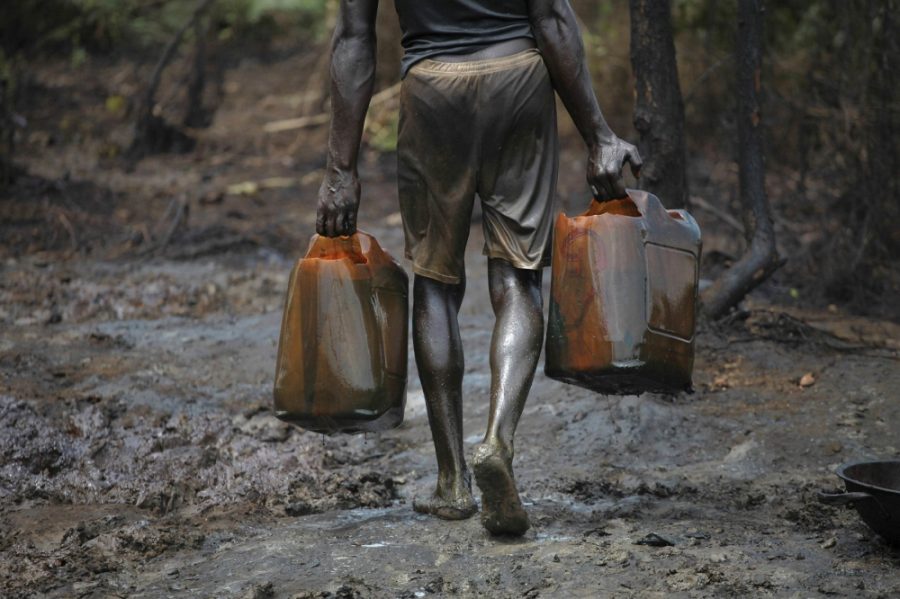Nigeria aims to legalise illicit oil refineries in the turbulent Niger Delta region, the vice-president’s office said on Thursday, April 7, 2017 hoping to bring peace to the production heartland for the crude on which the country relies.
If the refineries are legalised, it could help soothe tensions in the Delta states, where an uneasy peace is now being kept as the government holds talks with local communities, including militants whose attacks cut oil production by as much as a third last year.
Nigeria’s government depends on oil sales for around two-thirds of its revenue.
“Under the plan that is being developed, communities would come together working with their respective state governments, the federal government and private sector operators to work out a template for the establishment of modular refineries in the communities,” said the statement from the vice-presidency.
The legalised refineries must be structured “in a way that works for business or structure it in a way that is realistic and works, otherwise it would not last … it is a business proposition first and foremost, it must make sense,” said Vice-President Yemi Osinbajo, according to the statement.
The bush refineries, which support tens of thousands of people locally, are makeshift, blackened structures of pipes and metal tanks hidden in oil-soaked clearings, processing stolen crude from oil company pipelines.
Their legalisation is one of the main demands of community leaders in talks with the government.
A security crackdown has risked driving hundreds of young men from the refineries into the militant groups that have been attacking legitimate oil facilities in an attempt to force the government to allocate more money to the impoverished region.
“We are saying there is a way out of violent agitation, but it is by creating opportunities and the environment where the people in the communities can benefit,” Osinbajo said, according to the statement.
The Muhammadu Buhari-led federal government has struggled with relations with the people of the South South, the home of the Niger Delta, the owners of the oil and gas resources in the country.
President Buhari cast the tone for his relationship with the troubled oil region when a few weeks after his inauguration on May 29, 2015 he said that areas that gave him 5% votes (the South East and the South South), should not expected to be treated the same as areas that gave him 97% of the votes (North East and North West).
He has followed through his policy of marginalisation by attacking leaders – political, business, and traditional – from the Niger Delta. One of his early presidential orders was that the stipends to former Niger Delta militants who were under the Amnesty Programme be stopped.
Traditional rulers from the region have been hounded and harassed, their homes and shrines ransacked by agents of the country’s secret police. Soldiers have arrested a traditional ruler in Ogoniland.
The first president of Nigeria from the Niger Delta, Dr. Goodluck Jonathan, has been unfairly attacked by the Buhari regime in several forms under the guise of “anti-corruption” war. The Economic and Financial Crimes Commission has illegally clamped down on the bank accounts of former first lady, Dame Patience Jonathan, and those of leading businessmen and women from the region.
Because of the president’s anti-Niger Delta posture and policies, there has been a renewed restiveness in the region. The leading militant group in the region, the Niger Delta Avengers, successfully cut the oil production in the country from 2.2 million barrels a day to less than 600,000 barrels a day following a chain of attacks on oil installations.
Hattip to News Express







